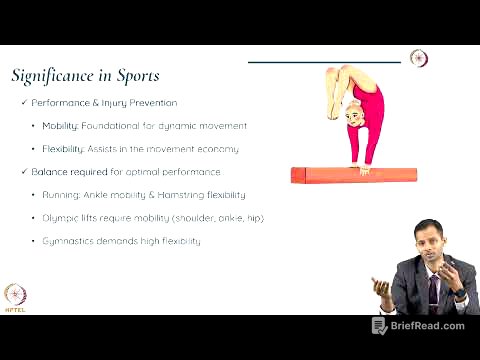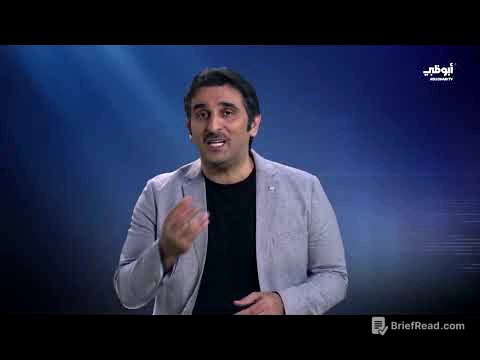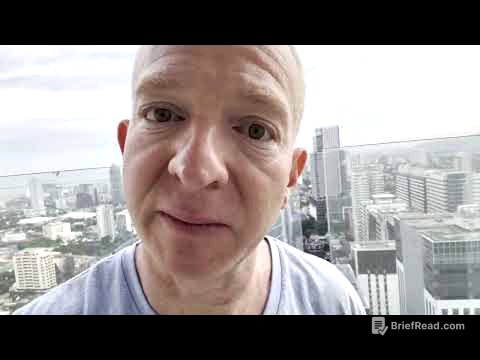TLDR;
The video discusses the current state of the world, marked by economic fragility, social division, and a sense of impending decline. It explores how algorithms exploit fear and anger for engagement, leading to societal polarization, and how economic circumstances contribute to a feeling of hopelessness, especially among younger generations. The video also touches on historical cycles of empire rise and fall, suggesting that the present challenges are not unique but part of a recurring pattern. It concludes with a call to focus on personal well-being, community building, and informed decision-making as a way to navigate these turbulent times.
- Algorithms exploit fear and anger for engagement, leading to societal polarization.
- Economic circumstances contribute to a feeling of hopelessness, especially among younger generations.
- Historical cycles of empire rise and fall suggest that the present challenges are not unique but part of a recurring pattern.
Introduction: Feeling of Unease [0:00]
The speaker expresses a sense of unease about the current state of the world, pointing to revised job numbers, a disconnected stock market, and increased social division. He mentions the concept of the "fourth turning" and Ray Dalio's perspective on the decline of the US empire. The speaker aims to provide a simplified overview of the situation, emphasizing the role of incentives and money in shaping current events, with the goal of helping viewers maintain sanity in an increasingly chaotic world.
Fragility in Attention and Economics [1:40]
The speaker identifies fragility in two key areas: attention and economics. He explains that algorithms are designed to capture our attention, with fear and anger being the most effective drivers of engagement. The speaker provides examples of how media companies have increased their use of divisive language to attract subscribers and generate revenue. This creates a cycle where sensational and outrageous content is prioritized, leading to further division within society.
Perversion of Economic Incentives and Societal Division [4:25]
The speaker describes the current media landscape as a "perversion of economic incentives," where there is more financial gain in provoking engagement than in providing neutral information. This has led to a split in society between those who recognize this pattern and those who do not. The division is particularly evident in politics, with Democrats and Republicans further apart than ever before. Inter-party marriage has also declined significantly, indicating a growing animosity between different groups.
Economic Hardship and Radicalization [6:00]
The speaker argues that economic hardship contributes to radicalization and violence. Many young people feel they will never own a home or build wealth, leading to a sense of hopelessness. This situation is exacerbated by bad immigration policies and a lack of social cohesion. The speaker suggests that when people have no stake in society, they are less likely to defend it, and the pursuit of material possessions becomes the primary binding force.
Historical Cycles and the Decline of Empires [9:13]
The speaker draws parallels between the current situation and historical cycles of empire rise and fall, as described by Ray Dalio and others. These cycles typically involve rising debt, increasing wealth inequality, bitter politics, and collapsing trust in institutions. Empires often respond with protective policies that ultimately weaken them. The speaker points to examples such as the fall of the Roman Empire and the decline of the British Empire, noting similar patterns in the US today, including a weakening dollar and a growing national debt.
Psychological Manipulation and Social Unrest [11:12]
The speaker emphasizes how perverse economic incentives weaken our psychology by dividing and distracting us. Algorithms feed us stories that reinforce our existing beliefs, leading to social unrest and a lack of consensus. While these issues are real and need to be addressed, the financial incentives driving the news cycle exacerbate the problem, creating a reality where no one can agree on anything.
Staying Sane and Focusing on the Basics [12:20]
The speaker shares his personal strategy for staying sane in the face of these challenges. He emphasizes the importance of building real things, owning real assets, building a family and community, and focusing on what one can control. This includes staying informed, taking care of oneself, and limiting social media use. The speaker warns against economic nihilism and encourages viewers to believe in the possibility of a better future.
Taking Control and Building a Better Future [13:57]
The speaker concludes by reminding viewers that while they cannot control external forces like the Federal Reserve or the media, they can control their own decisions. This includes being careful with debt, investing for the long term, and resisting the algorithms' attempts to turn us into angry, bitter people. The speaker suggests that by staying informed and focused on what matters, we can emerge stronger from these challenging times and contribute to a renewal and rebuilding of society.









